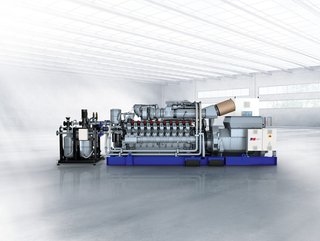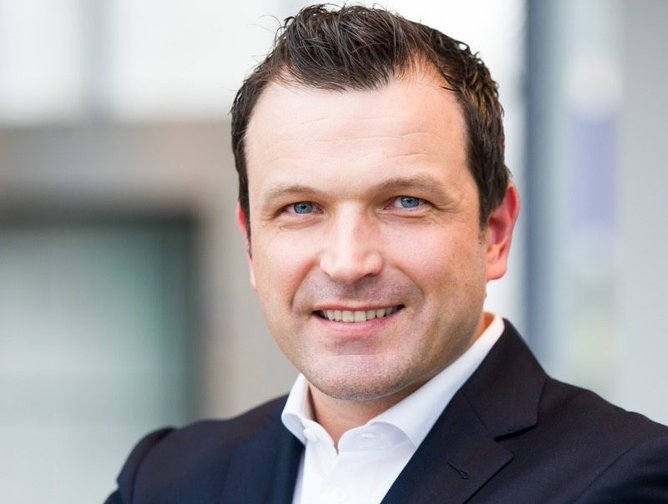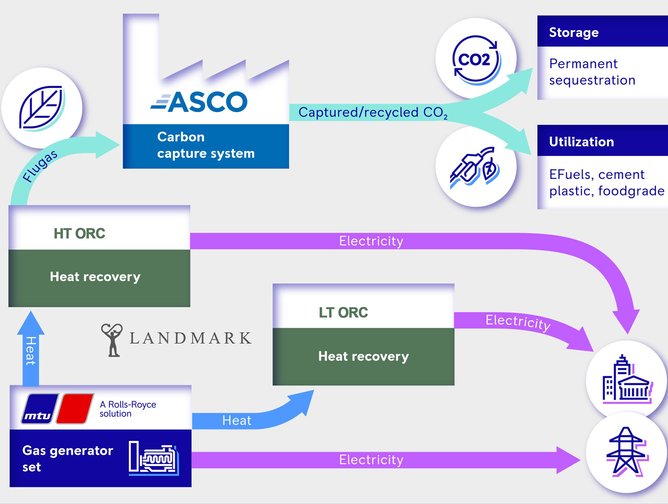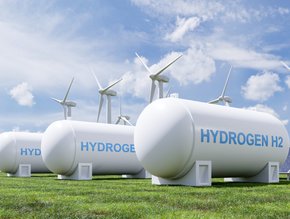Rolls Royce Holdings Generates Clean Power from CO₂ Capture

Rolls-Royce Holdings has strategically partnered with renewable power specialists ASCO Carbon Dioxide and Landmark Power Holdings Limited (LMPH) to develop scalable carbon capture technology for clean power generation.
“We want to serve hard-to-abate industries with a cost-effective solution and this cooperation is a huge step into the right direction,” says Ralph Spring, CEO of ASCO Carbon Dioxide.
Using mtu gas reciprocating engines, the partnership aims to develop clean power generation with carbon capture, both supporting Rolls-Royce and its customers achieve net zero and support wider, global environmental endeavours.

“Power generation is a highly attractive, growing market segment and an area of strategic focus for Rolls-Royce, where partnerships can help further grow market position and broaden its power generation offering, as set out at last November’s Capital Markets Day”, explains Tobias Ostermaier, President Stationary Power Solutions at Rolls-Royce Power Systems.
“We are convinced that CO₂ capture and storage systems in combination with our mtu gas gensets are an important building block on the way to Net Zero. As a complement to renewable energy sources, internal combustion engines can already provide clean, cost-effective and extremely reliable power generation.”

Now under construction is the first-of-its-kind decarbonised flexible power generation and carbon capture plant in the UK, which will support the UK grid and local residents whilst generating food-grade carbon dioxide from the resulting CO₂ emissions.
“This partnership is an important milestone in our collective mission to combat climate change and promote clean energy practices,” says Mick Avison, founder and managing director of Landmark Power Holdings.
Rolls-Royce Holdings’ sustainability strategy
Rolls-Royce Holdings develops and delivers complex power and propulsion solutions for safety-critical applications in the air, at sea and on land.
Headquartered in Germany, the company employs more than 10,500 people, is present in 48 countries and has customers in more than 150. As the second largest producer of aircraft engines (after GE Aerospace), these customers include more than 250 commercial large aero engine customers, 160 armed forces and navies and approximately 40,000 active Power Systems customers.
With a product portfolio including engines, propulsion systems, diesel and gas systems and battery containers for mission critical, standby and continuous power, Rolls-Royce delivers complex power systems and understands that it has a fundamental role in meeting the environmental and societal opportunities and challenges that the world faces.
The company is determined to use its position, capabilities and expertise as a global power group to help create a resilient, inclusive, net zero carbon future and accelerate decarbonisation, and is committed to achieving net zero emissions by 2050. To achieve this overarching goal, the company has set a series of goals and focuses including:
- Operations – achieving net zero greenhouse gas emissions from operations and facilities by 2030
- Decarbonisation – innovating complex, critical systems at the heart of global society
- Communication and collaboration – working with customers, regulators and policymakers, advocating for the necessary enabling environment
- SAF – ensuring all civil aero production engines are 100% SAF compatible by 2023
- CO₂ – reducing lifetime emissions of new sold products from Power Systems business by 35% by 2030
- Hydrogen – integrating 2MW of Hydrogen fuel cells into operational microgrids
- R&D – allocating more than 75% of research and development spend on lower, net zero carbon technologies by 2025
******
Make sure you check out the latest edition of Energy Digital and also sign up to our global conference series - Sustainability LIVE 2024
******
Energy Digital is a BizClik brand
******
- EU Targets Airline Greenwashing to Energise Climate ActionSustainability
- Honeywell Hydrocracking Tech Revolutionises SAF ProductionSustainability
- Mercedes F1 Team first in motorsport to sign Climate PledgeSustainability
- Inaugural trans-Atlantic flight highlights SAF importanceRenewable Energy






